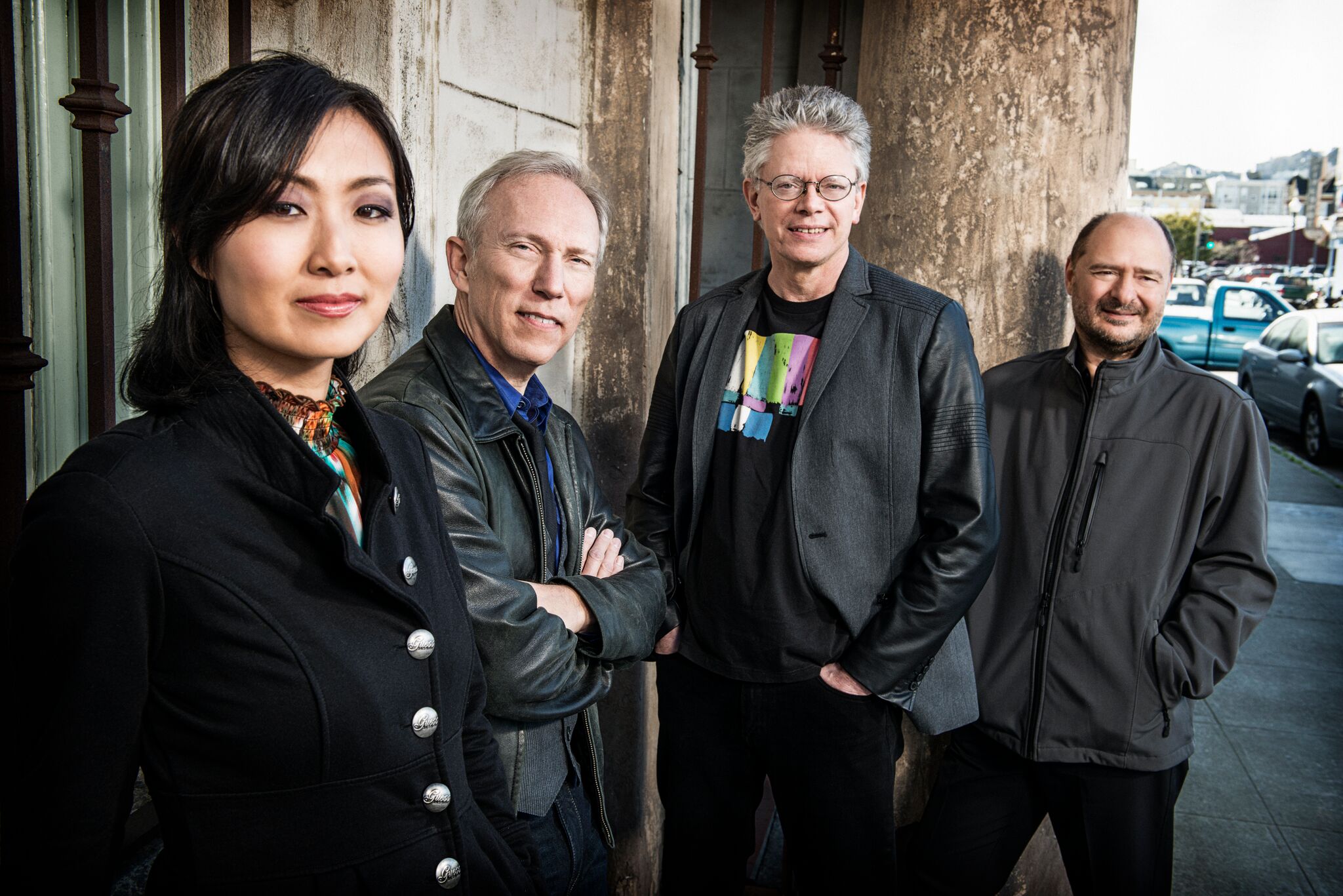

Biography
The Kronos Quartet is a string ensemble committed to reimagining the chamber music experience. For more than forty years, Kronos has built a wide-ranging repertoire, performing and recording works alone as a quartet and in collaboration with international composers, performers, filmmakers and other artists. Also integral to Kronos’ work is a dedication to education through its participation in academic residencies and its investment in mentoring emerging artists. Its current members are David Harrington (violin), John Sherba (violin), Hank Dutt (viola) and Sunny Yang (cello).
The ensemble began performing and recording works by twentieth-century Western classical composers, international contemporary composers and influential jazz artists. Today, Kronos is known for its long-running collaborations with established and influential composers such as Terry Riley, Philip Glass, Franghiz Ali-Zadeh, Steve Reich and Henryk Gérecki, with whom the group worked for more than twenty-five years. In addition, Kronos has performed with numerous international musical artists, including Wu Man, Alim Qasimov, Zakir Hussein, Asha Bhosle, Tanya Tagaq, Café Tacvba, Trio Da Kali, David Bowie, Patti Smith, Modern Jazz Quartet, Tom Waits and Caetano Veloso. The ensemble has also created works in collaboration with choreographers Merce Cunningham, Twyla Tharp and Eiko & Koma, among others.
Spending five months of each year on tour, Kronos has appeared in concert halls, clubs and festivals around the world, including Carnegie Hall, New York City; Barbican Centre, London; Big Ears Festival, Knoxville, US; Palacio de Bellas Artes, Mexico City; World of Music, Art and Dance (WOMAD), Charlton Park, UK; The Royal Concertgebouw, Amsterdam; Shanghai Concert Hall; Lincoln Center Out of Doors, New York; Sydney Opera House; Victoria Hall, Geneva and Schloss Esterházy, Eisenstadt, Austria.
Kronos’ work has been featured in a number of films, including Hochelaga, Terre des Âmes (2017); The Green Fog: A San Francisco Fantasia (2017); Noah (2014); Dirty Wars (2013), for which Kronos’ David Harrington served as music supervisor; How to Survive a Plague (2012); The Fountain (2006); Requiem for a Dream (2000); Dracula (1999) and Mishima: A Life in Four Chapters (1985).
In addition to its role as a performing and recording ensemble, the quartet is committed to mentoring emerging performers and composers and has led workshops, master classes and other educational programmes with institutions such as Carnegie Hall’s Weill Music Institute, New York; Kaufman Music Center's Face the Music, New York; Ruth Asawa San Francisco School of the Arts; San Francisco Conservatory of Music and the Embassy Adoption Programme, a programme of the Washington Performing Arts and District of Columbia Public Schools. Kronos has undertaken educational residencies at Cal Performances, University of California, Berkeley, US; Holland Festival, Amsterdam; Texas Performing Arts Association, University of Texas, Austin, US; New York University Abu Dhabi and Mount Royal University Conservatory, Calgary, Canada. In 2015, the non-profit Kronos Performing Arts Association (KPAA) launched Fifty for the Future: The Kronos Learning Repertoire, an education and legacy project that is commissioning and distributing for free the first learning library of contemporary repertoire for string quartet.
Kronos has released more than 60 recordings, commissioned over 900 works and arrangements for string quartet and received more than 40 awards, including the prestigious Polar Music Prize (2011) and Avery Fisher Prize (2011) as well as a Grammy for Best Chamber Music Performance (2004).
